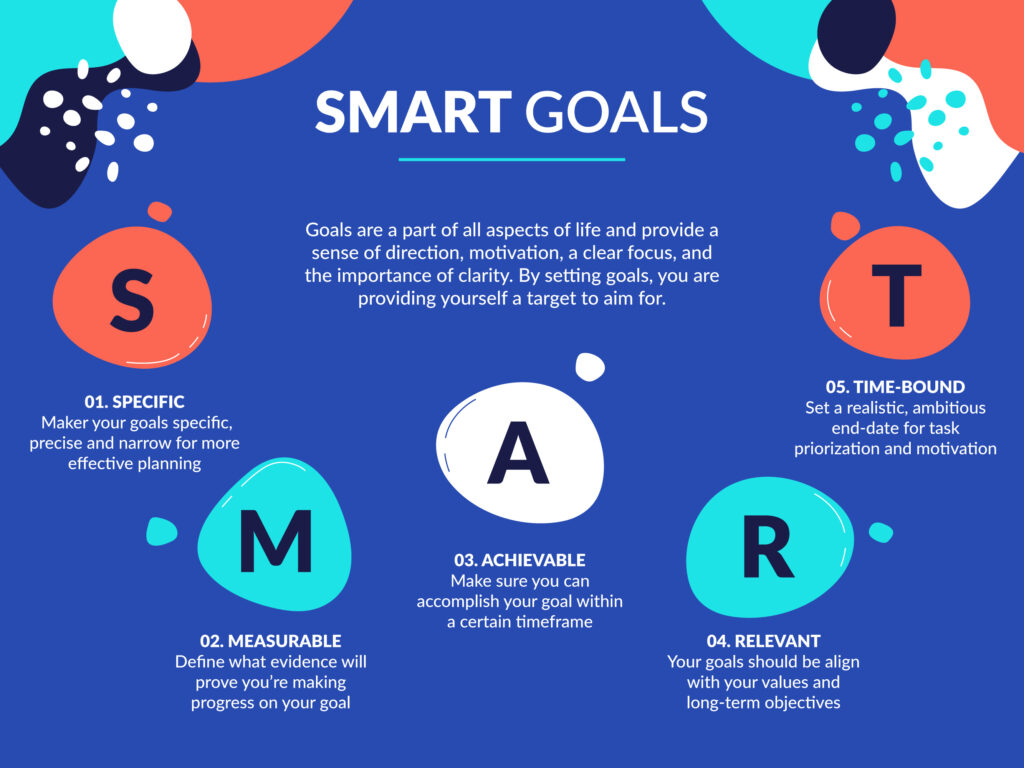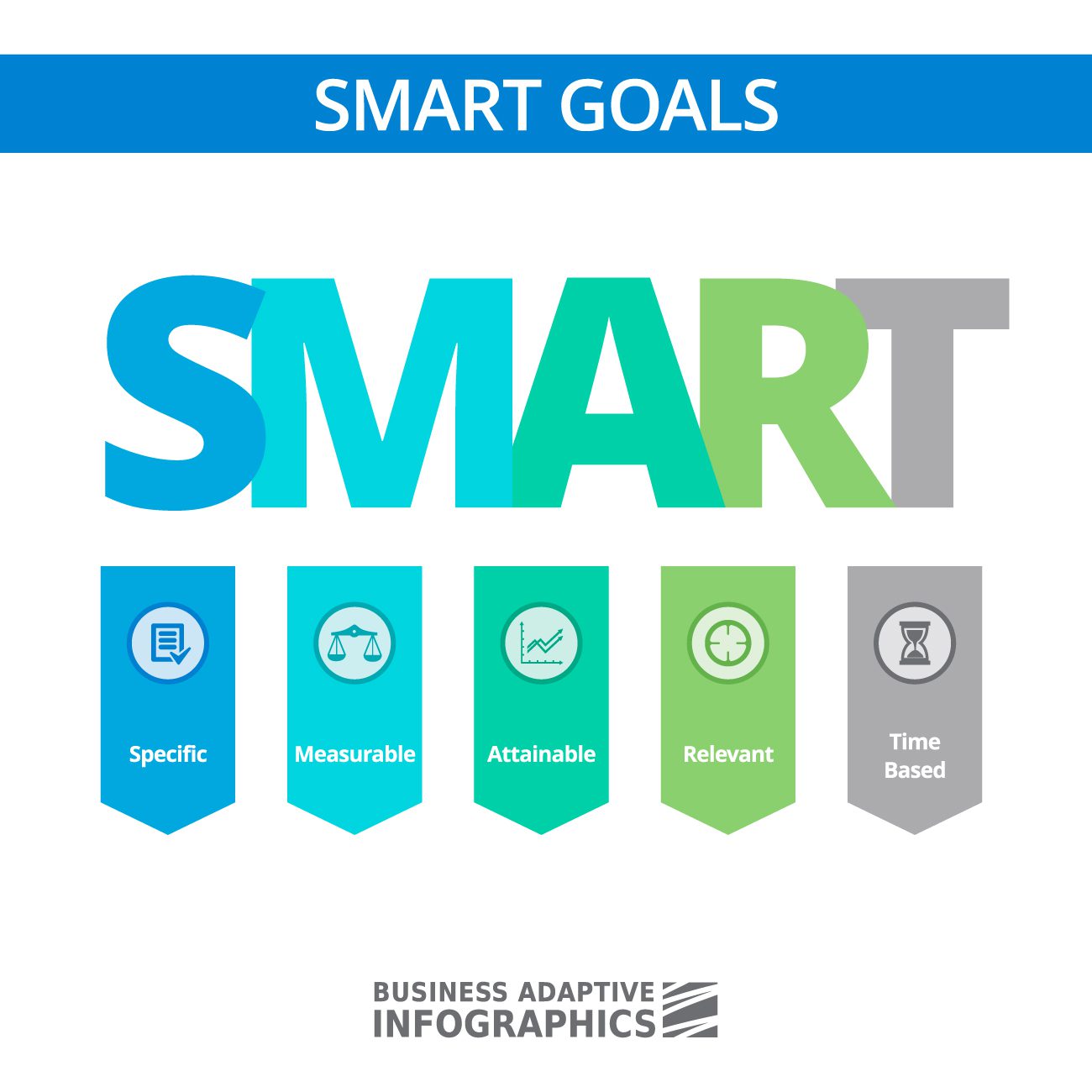Mastering the SMART Goal Framework for Academic Success
What if I told you that achieving top grades, completing assignments on time, and improving study habits could be as simple as setting the right goals? Yes! Success in academics isn’t just about working harder—it’s about working smarter. That’s where the SMART goal framework for students comes into play.
Goal setting isn’t just a buzzword; it’s a strategy that successful students use to stay focused, organized, and motivated. Whether you’re struggling with procrastination or simply want to level up your academic performance, the SMART goal framework for students is your secret weapon. Let’s dive into how this method can help you crush your academic goals!
What is the SMART Goal Framework?

The SMART goal framework is a powerful tool designed to enhance goal-setting effectiveness. It ensures that goals are:
- Specific – Clearly defined and precise.
- Measurable – Trackable with tangible outcomes.
- Achievable – Realistic within your abilities.
- Relevant – Aligned with your academic priorities.
- Time-bound – Have a clear deadline.
This framework ensures that students set meaningful, realistic goals that lead to measurable success.
Related: What Are the 10 Life Skills That Will Change Your Life?
Breaking Down SMART Goals for Academic Success
1. Specific: Define Your Goal Clearly
Vague goals lead to vague results. Instead of saying, “I want to get better at math,” try something like:
Example: “I want to improve my algebra grades from a C to a B+ by the end of the semester.”
By specifying your goal, you create a clear path to follow.
2. Measurable: Track Your Progress
How will you know if you’re making progress? Use numbers, milestones, or checkpoints.
Example: “I will complete five algebra practice problems daily and track my accuracy.”
Measuring progress keeps you motivated and allows you to make necessary adjustments.
3. Achievable: Set Realistic Goals
While ambition is great, unrealistic goals can be discouraging. Instead of aiming for straight A’s overnight, start with incremental improvements.
Example: “I will increase my test score by 10% over the next two exams.”
Making goals attainable builds confidence and momentum.
4. Relevant: Align Goals with Your Academic Priorities
Set goals that contribute to your overall success and personal growth. Don’t waste time on irrelevant objectives.
Example: “I will improve my essay writing skills to enhance my performance in English class.”
5. Time-Bound: Set a Deadline
A goal without a deadline is just a wish. Set a time frame to keep yourself accountable.
Example: “I will complete my research paper draft by the end of this week.”
How to Implement SMART Goals in Your Study Routine
Step 1: Write Down Your Goals
Studies show that writing down goals increases commitment. Keep a goal-setting journal to track progress.
Step 2: Break Large Goals into Smaller Steps
Overwhelmed by big goals? Break them down! If your goal is to improve your history grade, start by setting daily study sessions.
Step 3: Use a Planner or Digital Tools
Apps like Notion, Trello, and Google Calendar can help schedule study sessions and reminders.
Step 4: Stay Accountable
Share your goals with a study partner or mentor who can check in on your progress.
Step 5: Reflect and Adjust
Regularly evaluate your progress. If something isn’t working, tweak your strategy.
Real-Life Example: A Student’s SMART Goal in Action
Meet Jake, a high school student struggling with science. Instead of saying, “I need to do better in chemistry,” he set a SMART goal:
Specific: “I want to improve my chemistry grade from a C to a B+.”
Measurable: “I will complete three practice tests and review mistakes every week.”
Achievable: “I will attend two tutoring sessions per week.”
Relevant: “Improving my chemistry grade will help me qualify for my dream college.”
Time-bound: “I will reach my goal by the end of the semester.”
By sticking to his SMART goal, Jake transformed his academic performance and gained confidence.
Final Thoughts: The Power of SMART Goals in Academic Life
Success doesn’t happen overnight, but with the SMART goal framework for students, achieving academic excellence becomes a structured, achievable process. By setting clear, measurable, and realistic goals, you empower yourself to take control of your studies and shape your future.
Remember, small steps lead to big results. Start setting SMART goals today and watch your academic success soar!
Call to Action
Thank you for exploring this insightful article! If you’re hungry for more knowledge, don’t miss out on our other engaging articles. Dive into our treasure trove of wisdom and discover new perspectives on related topics. Click ‘Our Blog‘ and ‘How to Guide‘ to embark on your next adventure. Happy reading!
FAQs on SMART goal framework for students
1. What are SMART goals for students?
SMART goals help students set clear, realistic objectives to improve academic performance.
2. How do I set a SMART goal for studying?
Define a specific target, measure progress, make it achievable, ensure relevance, and set a deadline.
3. Can SMART goals help with time management?
Yes! SMART goals promote efficient planning and prevent last-minute cramming.
4. How often should I review my SMART goals?
Review them weekly or monthly to track progress and make adjustments.
5. What if I don’t achieve my SMART goal?
Analyze what went wrong, adjust your approach, and try again.
6. Can SMART goals be used for long-term academic success?
Absolutely! They provide structure for both short-term and long-term goals.
7. Are SMART goals only for high school and college students?
No! They work for learners at all levels.
8. Do SMART goals work for group projects?
Yes, they help teams stay focused and accountable.
9. How do I stay motivated while following my SMART goals?
Track progress, celebrate small wins, and seek support from mentors or friends.
10. Where can I find more resources on SMART goal setting?
Check out educational websites like MindTools.com and Edutopia.org for more strategies.

